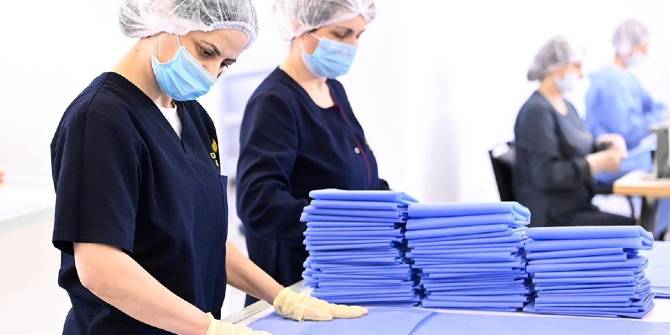It was the year of vaccines, Delta… and now Omicron. How can public policy help us as we approach the third year of the pandemic? Ros Taylor, editor of LSE COVID-19, highlights ten posts from 2021 that shed light on the dilemmas policymakers face.
All of us at the LSE’s School of Public Policy wish readers a peaceful holiday.
Billions of jabs have been administered, but overwhelmingly in richer countries. Why hasn’t COVAX been able to vaccinate more of the Global South?
The rich countries that developed Covax have actively undermined it
How the TRIPS waiver would free Global South countries to manufacture their own mRNA jabs
Why some Ugandans are reluctant to be vaccinated
‘Only for African export’: understanding vaccine hesitancy in a Ugandan town
COVID: blowing apart assumptions about how the economy can (and should) be managed
More lockdowns or restrictions look painfully likely. But what motivates people to obey the law when it is mostly unenforceable?
When lockdown law is effectively unenforceable, what motivates people to obey it?
School and care closures place an enormous burden on women – but policymakers have barely acknowledged it
Too exhausted even to watch the news: a plea for COVID-19 policy that considers women
WFH is often comfortable for the middle classes, but it doesn’t pull people out of poverty
More than ever, we need the rich to pay their taxes. Creating a sense of mutual obligation can achieve that
A sense of mutual obligation means that even the rich should see the point of paying their taxes
Some predicted that the pandemic meant the end of the austerity era. Don’t be so sure
Why austerity may be making a post-COVID comeback – in Britain, at least
Once again, SAGE’s deliberations are under scrutiny. What principles should the government follow when acting on models?
For the latest public policy thinking on the pandemic, subscribe to the LSE COVID-19 blog’s newsletter.
Photo: Maria Eklind via a CC BY SA 2.0 licence.





